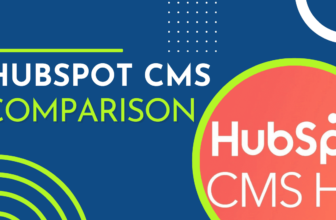
We Discuss The Question Why Is Marketing Important.
Even if companies have superior services or products, fiercely competitive prices and the willingness and ability to provide optimal customer support, they will still fail in their industries if they lack solid and strategic marketing plans. Why is marketing important for the growth and stability of businesses? There are many reasons why companies are heavily reliant upon marketing for success. Foremost among these, is the fact that marketing is how businesses find, attract and retain customers.
Defining The Targeted Market
One of the most important parts of any marketing plan is defining the targeted market. In fact, when professional marketing firms are used by companies, this is the very first service that they supply. Defining the targeted market helps companies understand the needs, buying habits and overall behaviors of the consumers who are most likely to look for and invest in their goods. Through this process many companies are also able to streamline their overall business goals, enhance their product development efforts and identify and resolve potential problems with the services or merchandise they provide.
Selling Without Marketing
Selling without marketing is an endeavor that is destined for failure. Businesses may not recognize how far-reaching and all-encompassing the concept of marketing actually is. Marketing can be anything that a company does to introduce itself and its services or wares to a general or select audience. Creating a product and building a website with a user-friendly payment platform will not result in sales. Buyers have to know why these things exist and why they want to use them. The goal of marketing is to educate, inform and convince.
Educating Customers And Prospective Customers
By defining the market that is being targeted, a company can learn more about the needs that it is meeting. The next step in the marketing plan is to tell people about their needs and how the business can fill them. This is the process of educating customers and in highly competitive markets it often entails in-depth product and service comparisons that show why one company is better able to meet specific needs than others. Educating consumers can also be helpful in moving them through the normal buying process. Many people move through various stages of the decision-making process before investing, during which they assess the value of the products being offered along with their need or desire for these, make price comparisons, determine the necessary specifications for their purchases and then close deals. Good marketing anticipates and answers all of the questions that buyers are likely to ask throughout each one of these phases so that customer attention is not lost before positive purchasing decisions are made.
Customer Retention
It is important for companies to go beyond merely connecting with qualified prospects and converting them. Existing customers are among the most value assets that a business can have. Thus, a comprehensive marketing plan is also designed to generate repeat business, foster stronger relationships with clients and help companies keep in touch so that their images and their products remain fresh in the minds of these consumers. Without ongoing marketing efforts, businesses are likely to lose customers to their competitors and will not be able to build stable, customer bases or enjoy consistent profits.
Establishing A Strong Brand Image
Marketing is also inextricably linked to the brand-building process. In order for companies to create recognizable and approval-worthy brands, they must be cognizant of the impact that all promotional efforts have on consumer perceptions. Each online or offline ad that is used to generate interest in a company will play a role in establishing the company’s brand. It is important to note that many consumers are more likely to favor brands that they recognize over those that they do not, in spite of any marked, cost differences. Moreover, it is not possible to brand a business without first marketing it.
Proactive Reputation Management
Beyond defining the target market, attracting qualified prospects, building strong brands and helping companies stay in contact with their existing customers, why is marketing important? Marketing allows companies to constantly engage in proactive reputation management. This is the process of building a trustworthy and appealing image that is not easily tarnished by negative feedback or other forms of negative publicity. Proactive reputation management is infinitely more effective than issuing reactive responses to targeted attacks on the reputation of a company. Thus, marketing is just as essential for helping companies build and retain goodwill as it is for generating new business.
126






